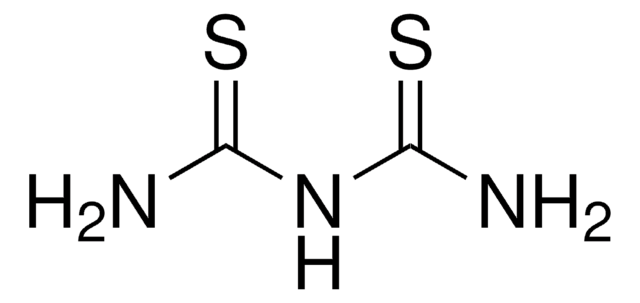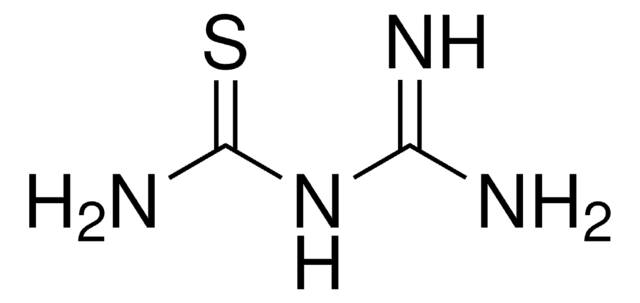D4139
N,N-Dimethyl-p-phenylenediamine dihydrochloride
≥99.0% purity (titration), powder
Synonym(s):
4-Amino-N,N-dimethylaniline dihydrochloride, DMPD · 2HCl, DMPPDA · 2HCl
About This Item
Recommended Products
product name
N,N-Dimethyl-p-phenylenediamine dihydrochloride, suitable for peroxidase test, ≥99.0% (titration)
Assay
≥99.0% (titration)
form
powder
color
white to light pink, and tan
mp
222 °C (dec.) (lit.)
solubility
water: 50 mg/mL, clear
suitability
suitable for peroxidase test
application(s)
diagnostic assay manufacturing
hematology
histology
storage temp.
room temp
SMILES string
Cl[H].Cl[H].CN(C)c1ccc(N)cc1
InChI
1S/C8H12N2.2ClH/c1-10(2)8-5-3-7(9)4-6-8;;/h3-6H,9H2,1-2H3;2*1H
InChI key
IAEDWDXMFDKWFU-UHFFFAOYSA-N
Looking for similar products? Visit Product Comparison Guide
Application
Biochem/physiol Actions
Caution
Signal Word
Danger
Hazard Statements
Precautionary Statements
Hazard Classifications
Acute Tox. 3 Dermal - Acute Tox. 3 Inhalation - Acute Tox. 3 Oral
Storage Class Code
6.1C - Combustible acute toxic Cat.3 / toxic compounds or compounds which causing chronic effects
WGK
WGK 3
Personal Protective Equipment
Certificates of Analysis (COA)
Search for Certificates of Analysis (COA) by entering the products Lot/Batch Number. Lot and Batch Numbers can be found on a product’s label following the words ‘Lot’ or ‘Batch’.
Already Own This Product?
Find documentation for the products that you have recently purchased in the Document Library.
Customers Also Viewed
Our team of scientists has experience in all areas of research including Life Science, Material Science, Chemical Synthesis, Chromatography, Analytical and many others.
Contact Technical Service











